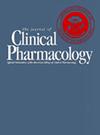Time Trends in Physician Visits for Gastroesophageal Reflux Disease Before and After the Rx-to-OTC Switch of Proton Pump Inhibitors.
IF 2.3
4区 医学
Q3 PHARMACOLOGY & PHARMACY
引用次数: 3
Abstract
The availability of non-prescription or over-the-counter (OTC) medicines plays an important role in the United States (U.S.) healthcare system. Potential benefits to consumers of OTC drugs include increased access to effective medications, avoidance of unnecessary physician visits, as well as promoting increased patient autonomy and successful self-care.1 In addition, the availability of effective OTC medications for common conditions may be advantageous for the U.S. healthcare system by reducing the number of non-essential physician visits, while creating a more rational allocation of healthcare resources to manage more serious conditions and other healthcare priorities. Despite this theoretical benefit, the true impact of making medications available OTC on healthcare utilization is largely unknown. This article is protected by copyright. All rights reserved质子泵抑制剂转为处方药前后胃食管反流病就诊的时间趋势
本文章由计算机程序翻译,如有差异,请以英文原文为准。
求助全文
约1分钟内获得全文
求助全文
来源期刊
CiteScore
5.10
自引率
3.40%
发文量
176
审稿时长
2 months
期刊介绍:
The Journal of Clinical Pharmacology (JCP) is a Human Pharmacology journal designed to provide physicians, pharmacists, research scientists, regulatory scientists, drug developers and academic colleagues a forum to present research in all aspects of Clinical Pharmacology. This includes original research in pharmacokinetics, pharmacogenetics/pharmacogenomics, pharmacometrics, physiologic based pharmacokinetic modeling, drug interactions, therapeutic drug monitoring, regulatory sciences (including unique methods of data analysis), special population studies, drug development, pharmacovigilance, womens’ health, pediatric pharmacology, and pharmacodynamics. Additionally, JCP publishes review articles, commentaries and educational manuscripts. The Journal also serves as an instrument to disseminate Public Policy statements from the American College of Clinical Pharmacology.

 求助内容:
求助内容: 应助结果提醒方式:
应助结果提醒方式:


